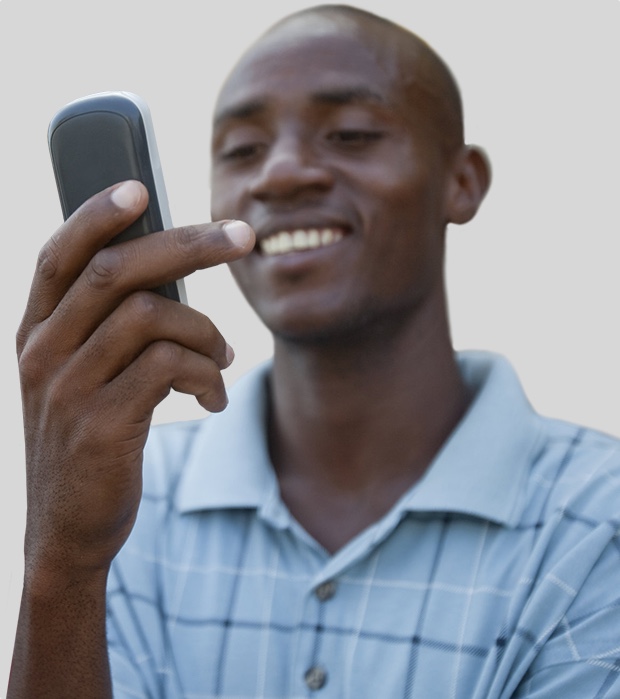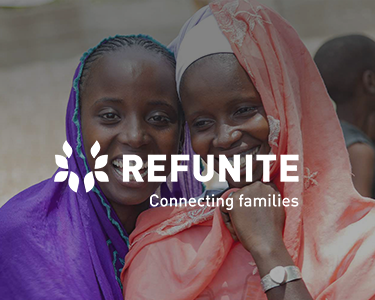
Solve one of these nine challenges and help reunite separated refugee families. Put your skills to the test and compete to win a trip to Kenya and test your prototype in a refugee camp. Join the Global Hack for Good powered by Ericsson and Refugees United. This Global Hack for Good will take place in Cairo, Silicon Valley, and Nairobi.
Register on Meetup.com today and participate in the event in your city.
At each event, dedicated developers will have a weekend to solve a technical challenge that will be judged by an expert jury including Ericsson and Refugees United representatives. Below are the technical challenges. You will be asked to solve one of these technical challenges.
The jury will select two finalists at each location. They will win a smart phone. The three winners will be announced on World Refugee Day, 20 June 2013 via Google Hangout. The three winners will win a trip to Kenya, where the three winning prototypes will be put to the test in a refugee camp.
SOLVE ONE OF THESE TECHNICAL CHALLENGES
Improving USSD and SMS. How do we let the user create messages within a short timeframe? USSD user interaction must be fast to avoid session timeouts. As for SMS, we would like to allow user registration as well as creation of missing persons. We would also like to create internal messaging through our SMS gateway, so users can exchange messages without having to reveal too much personal information, such as a phone number.
Social network integration. How can we integrate the Refugees United service with large social networks? As an example, is it possible to integrate the search results from other services into the Refugees United service? And vice versa: is it possible to feature profiles from Refugees United on various social media sites?
IVR. How do we develop an intelligent IVR application with basic functionality, such as: create profile, create missing person, record voice messages, “read” messages (text-to-speech), search. As an example, one could record a presentation of oneself, record messages and send them instead of texts. Voice recognition is a great way to identify missing loved ones (as opposed to pictures.)
Match determination. We don’t have an official way to determine if two users have been reunited. Only guesstimates based on interaction between users. How can we improve this? E.g.: Is it possible to create a self-learning system that will ask users if they have been reunited (yes/no/I don’t know yet/we’ve never been separated.) How can we use this data to get a better idea of when reconnections have taken place?
Tweaking Solr: How do we optimize our search engine to get better and, perhaps, fewer results? Currently, our search engine provides very simple search results (i.e. matching based on names, country and gender.) Solr data schemes and searches can be tweaked in different ways. How can we improve this? E.g.: Apart from also searching in more data fields than ‘names’, it’s possible to boost the score of matches with same properties as the user performing the search (same country of origin, same tribe etc.).
Reversed Search. How do we eliminate manual searches and create an intelligent match engine? I.e. suggestions of people you might know. The system makes suggestions based on the users profile information, IP location, friends, friends of friends etc.
Message flagging. Users are able to send messages to each other. We are having SPAM issues. As we’re very concerned about user privacy, we are unable to use a hosted service to detect and filter spam. But most spammers use very simple techniques and are easy to detect and flag. It would be great if this system will allow us to detect possible security-risky content like location and phone number.
Engagement and help. How do we motivate users to help locate people posted by other users? We want the users to help each other by inviting other users and assisting other users. Can we make this easier via integration into phonebooks? How do we spread information about missing persons and motivate people to help find missing persons for each other?
Intelligent search. Could our search work more like “Wolfram Alpha.” One of the current challenges is the issue of having 1000 “Mohamed Ahmeds.” How are we going to give users the most refined search results? One suggestion is to use computational knowledge by computing answers from different data sources, e.g. Facebook, Refugees United, Google, UNHCR and Red Cross and explicitly mention the sources broken down differently. Check this out: Wolfram vs. Google. Some examples of searches: 1) “Mohamed Ahmed left Somalia in 1994, black scar on left chin, mother Surahi Amina”. 2) “Tall Somali, talks a lot, loves chicken called Amin Abudulahhi, worked at Coca Cola Somalia in 1984 to 1990, now approx. 40-45 years old”. Ideally, our system should be able to compute the main keywords and refine search by computing the answer from different data sources – “curated data” – rather than only internal Refugees United.
BACKGROUND
Of the world’s more than 43 million displaced people, countless family members have become separated during their escape from conflict and natural disasters. Given the violent circumstances under which most of them flee, people are scattered in a panic and begin their trek towards safety in whichever direction the crowd takes them. Some go south, others head north.
Up until recently, refugee family tracing consisted of pen and paper forms, individual silos with little information shared between organizations. No open, central databases were created for organizations to input and cross-reference from, no mobile technology taken into use.
The number of people who was helped to find their missing loved ones in this system was less than optimal. The main reason being the bottleneck arising as organizations were relying on only one or two aid workers to deal with tens of thousands of refugees, sometimes hundreds of thousands, in camps and urban areas.
And, the most important part of the equation was left out… the refugees themselves.
About WWW.REFUNITE.ORG
The platform www.refunite.org was created to provide not only a powerful platform and toolset for aid agencies to better assist separated families, but to empower refugees to take the search process into their own hands.
Working inside refugee camps and urban areas through East Africa, our teams and partners have so far registered nearly 200,000 refugees. We collect information through WAP and connect knowledge from our platform via SMS. Please see m.refunite.org for more information.
Despite our successes, we’re still facing immense obstacles in our work. Obstacles you can help us with, to help seperated family members find each other again.
Our users, living in e.g. Dadaab refugee camp in Kenya, fall in the low-skill and low literacy bracket, but are very resourceful. Some amongst them will be literate and understand tech better than others, and these will typically be singled out for assistance. Most have access to a basic phone and everyone with a phone will top it up with airtime daily, using USSD.
Place yourself in a 40-degree hot desert, hungry, looking for family and relatives, with only a $10 feature phone and no money. This is who you will help.


